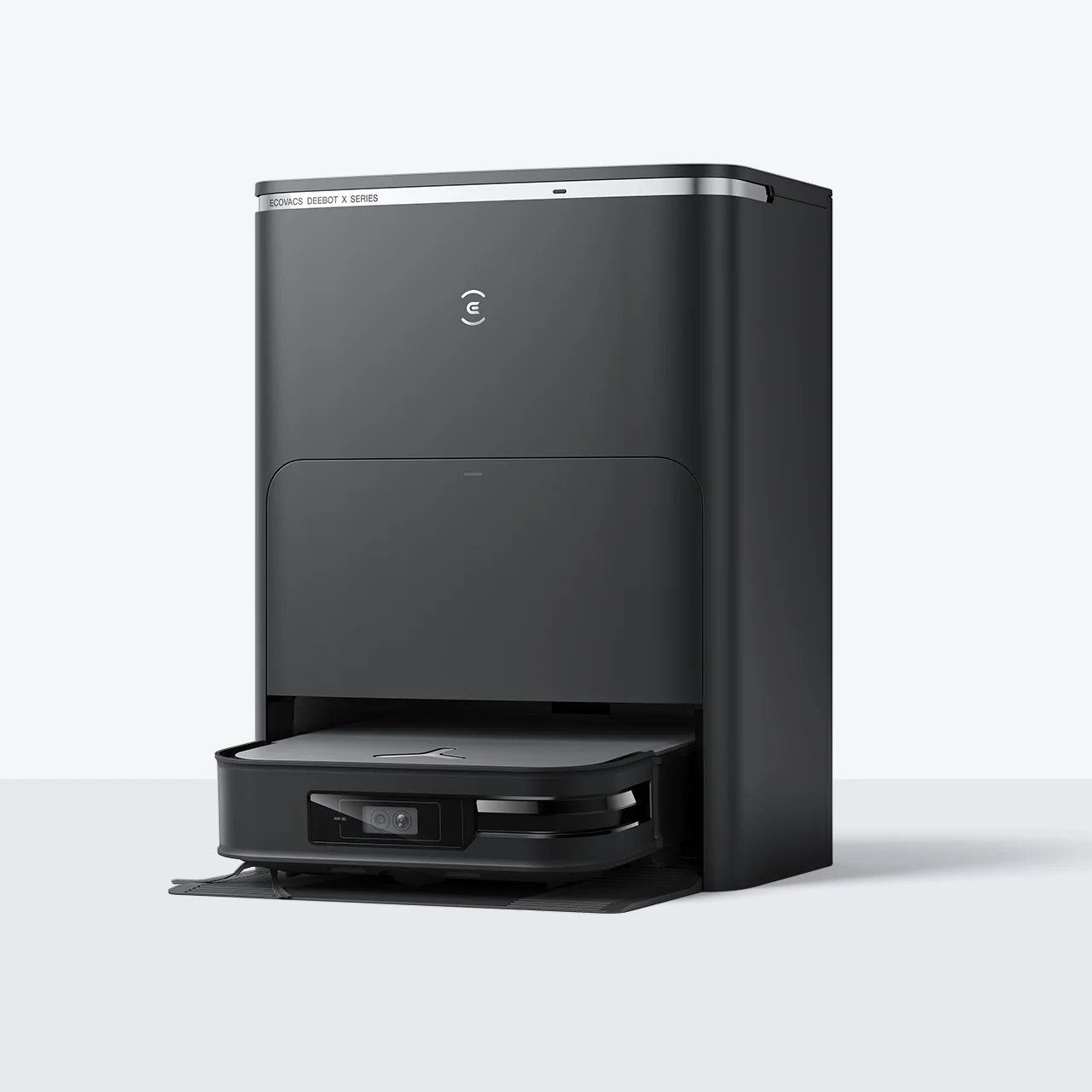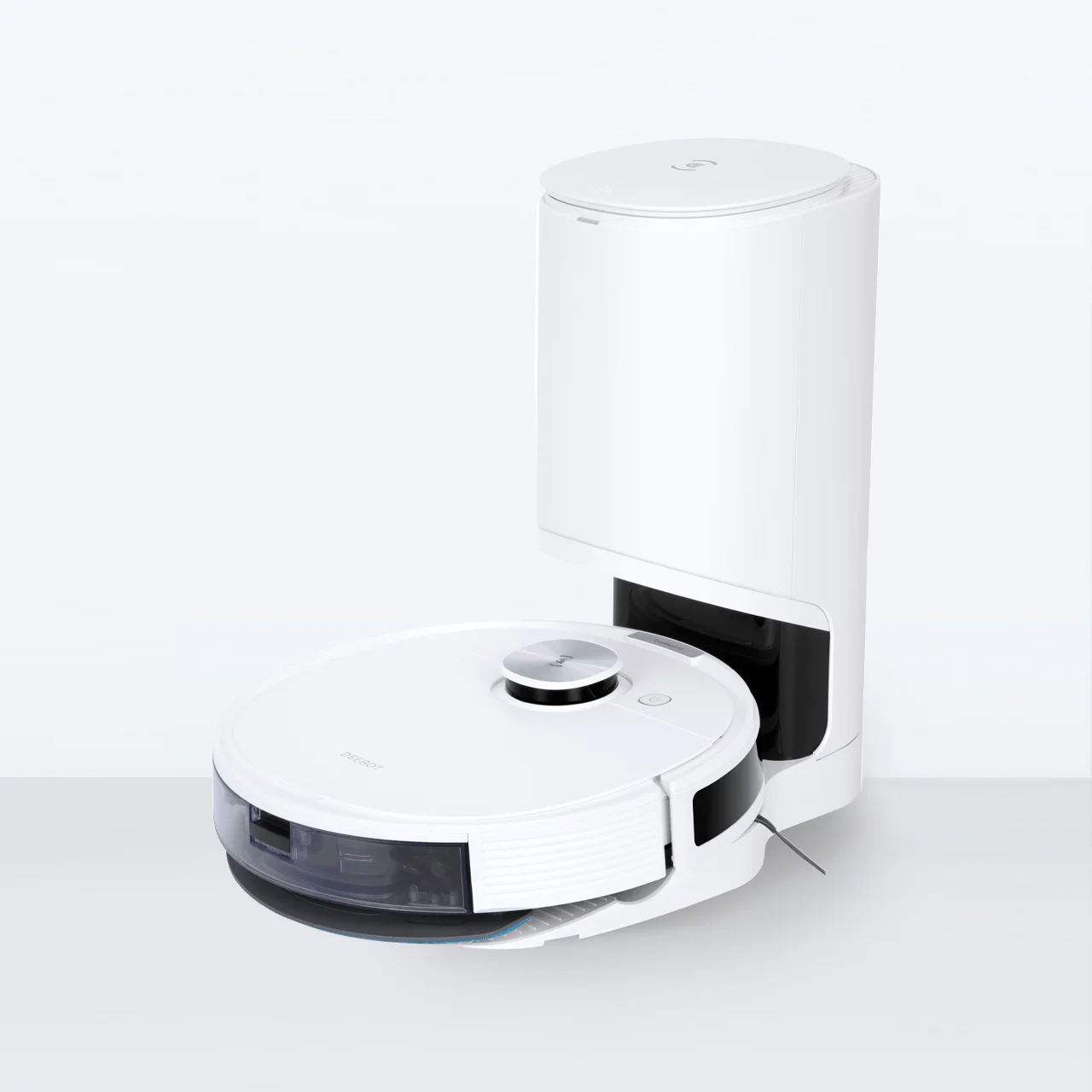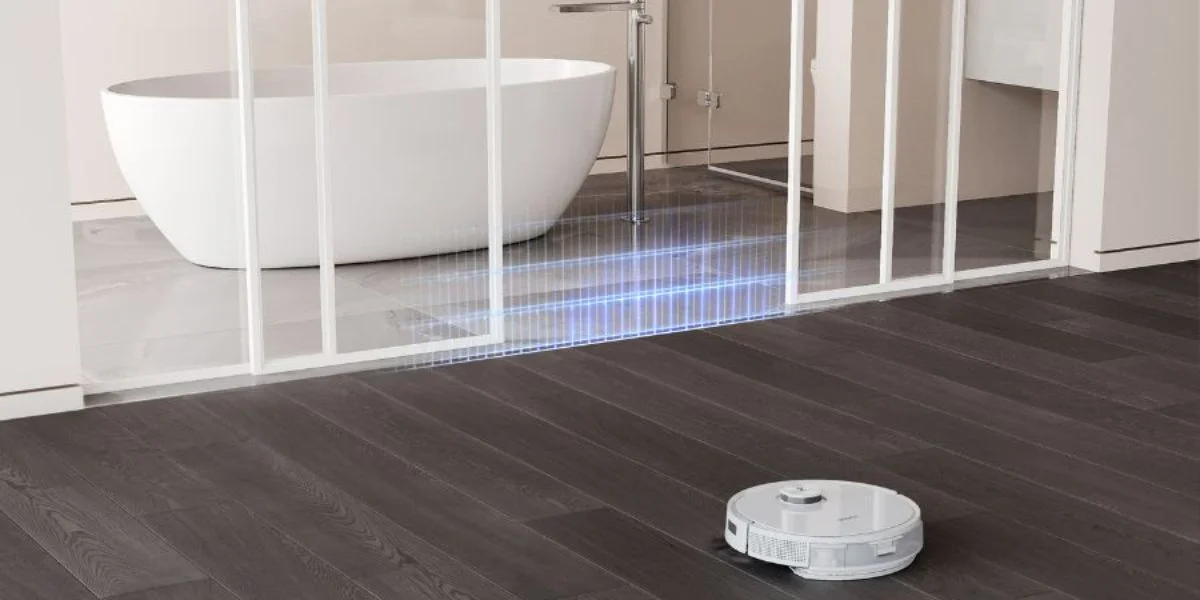
Did you know that 48% out of all pet owners in Australia own dogs? If you're lucky to have a furry friend in your life and are considering buying a robot vacuum, you might wonder how they will react to these automatic cleaning devices. Will they be startled or frightened by its unfamiliar movements and sounds, or will they be curious and try to play with it?
As robotic vacuum cleaner technology continues to advance, various features and training methods have emerged to help ease the transition for you and your dogs. Many manufacturers, including us at ECOVACS, even offer pet-friendly smart vacuums to seamlessly introduce the device into your household.
Why Is It Important to Introduce Your Dog To A Robot Vacuum?
Introducing your pet to an auto vacuum is important for their comfort and safety and for prolonging the device’s lifespan. Just like when a child first encounters a new toy, a gradual introduction helps your dog feel at ease and prevents fearful reactions.
If your pup is not properly introduced to the smart vacuum, they may develop persistent fear and stress responses. They could even start barking, growling or attacking the machine. If they are scared, they could damage it by chewing on it or knocking it over. This will not only put them at risk, but you would also end up having to bear additional costs for replacing or repairing the vacuum. Try to acclimate your pup to the vacuum through positive reinforcement and gradual exposure, as this will go a long way in creating a safe and peaceful coexistence in your home.
What Are the Common Reactions of Dogs to Robot Vacuums?

Keep in mind that a dog’s reaction to an automatic floor cleaner can vary depending on the individual personality and characteristics of their breed. Some dogs may approach it with curiosity, while others may react with fear or even playfulness.
● Curiosity: Some dogs will approach the device with a happy, wagging tail. They may even follow it around and sniff it out of sheer curiosity. These inquisitive pups are often driven by their natural tendency to investigate new objects in their environment.
● Fear: If your puppy starts barking or trying to hide from what they think is a strange moving object, they’re most likely feeling fearful. This reaction is typically rooted in a dog’s instinctive wariness of unfamiliar things, especially if the robot vacuum’s noises or movements startle them.
● Playfulness: Dogs who are naturally more energetic and adventurous will try to engage with the automatic vacuum cleaner playfully. They may chase after it or even try to pounce on it.
● Indifference: Some pups will simply ignore the machine entirely and seem completely uninterestedin the new addition to their surrounding. This nonchalant attitude may stem from a more aloof or confident temperament, where the dog sees no need to react to or investigate this device.
How to Introduce Your Dog to a Robot Vacuum?
It is important to properly introduce your dog to a robot vacuum because this helps prevent anxiety and fear in them, and protects your device from potential damage. But this doesn’t have to be a daunting task. Simply follow our step-by-step guide to help you through the process.
- Expose your dog to the smart vacuum by simply allowing them to observe the device from a distance. This will get them used to looking at it while it’s turned off and stationary. Give them plenty of positive reinforcement, such as treats and praise so that they start associating the vacuum with good things.
- Once your dog feels calm and comfortable,slowly move the auto vacuum closer to them, still with the power turned off. Let them sniff and get used to the machine. Reward them for staying at ease during this stage.
- The next step is to turn it on, but keep it at a distance. Observe your pup’s reaction and be prepared to turn it off if they seem at all distressed. Remember to continue offering treats and lots of praise for calm behaviour.
- Gradually move the powered-on device closer to your dog but always keep a watchful eye on their body language. If they show any signs of fear or aggression, take a step back and try again another day.
3 Best Pet-friendly DEEBOT Robot Vacuum
When choosing a pet-friendly smart vacuum cleaner you need to consider features such as strong suction power, advanced mopping system to target pet stains and quiet operation mode that won’t startle your dog. Each of these 3 DEEBOT cleaners were created with pet-owners’ needs in mind.
DEEBOT T30 PRO OMNI

Does your dog’s hair often get stuck in corners and edges? This model has adjustable mopping pads that automatically clean along baseboards and chair and table legs. Plus, with an impressive suction power of 11,000Pa1, you can be sure that it thoroughly removes pet hair even from carpets or uneven floors.
There are few things worse than having to manually clean pet hair tangled in your robot vacuum cleaner. Thankfully, this device comes with an advanced zero tangle feature that keeps the brush from getting clogged with hair. Plus, its high-sensitivity sensors can detect and target stubborn pet stains by automatically initiating a deep mopping mode.
Shop DEEBOT T30 PRO OMNI NowDEEBOT X2 OMNI
The DEEBOT X2 OMNI boasts a “pet-friendly AI mode” that identifies whether you have pets at home and recommends the most effective cleaning solution. It also has LiDAR mapping technology that can detect objects up to 10 meters away with a 210-degree angle of view, enabling it to navigate safely around pets and avoid dog poop using its obstacle avoidance features. For example, if the auto vacuum detects your dog sleeping on the floor, it can adjust its navigation to clean around the dog without disturbing them. It can also maximise its suction power to up to 8000 Pa 2 to collect any stubborn pet dander and pet hair.
Shop DEEBOT X2 OMNI NowDEEBOT N10 PLUS
When you have pets, fur and hair can get deeply embedded in floor crevices or carpets. The DEEBOT N10 PLUS effectively picks these particles up with its 4300 Pa 3 suction power. It also has a glass fibre fan motor which keeps the overall volume of the machine low to avoid scaring your furry friends. After thoroughly cleaning your house, the vacuum self-empties its dustbin into a 2.5L hypoallergenic disposable bag4, which can hold up to months’ worth of dust and pet hair. It also has an antibacterial filter 5 to get rid of pet hair odour.
If you have carpeted floors and a pet with long hair, you’ll be happy to know that this model has a rubber brush that powerfully agitates the carpet fibres to release more dirt and debris. You can also easily remove any tangled pet hair from the brush.
Shop DEEBOT N10 PLUS NowFAQ
Are robot vacuums safe for pets?
Most smart vacuums are safe for pets, but you will have to watch over your pet’s initial interactions to make sure the machine doesn’t startle them.
How long does it take for a dog to get used to a robot vacuum?
The amount of time it takes for your pet to get used to a robotic vacuum cleaner can depend on their temperament and breed. However, most pets will likely get used to it after a few days or weeks of exposure.
Can robot vacuums clean up pet hair effectively?
Automatic vacuum cleaners can be very effective in cleaning pet hair from your floors using their suction power and navigation capabilities. But remember toregularly empty the dustbin and clean the sensors and brushes to improve its performance.
Disclaimer(s):
- 11,000Pa: This data comes from ECOVACS laboratory. The suction power of DEEBOT T30 PRO OMNI can reach 11,000Pa.
- 8,000Pa: This data comes from ECOVACS laboratory. The suction power of DEEBOT X2 OMNI can reach 8,000Pa.
- 4,300Pa: This data comes from ECOVACS laboratory. The suction power of DEEBOT N10 and DEEBOT N10 PLUS can reach 4,300Pa.
- Antibacterial* Dust bag: The antibacterial agent SILVADUR TM 930 Antimicrobial (EPA Reg. No.:464-785) has been added to ECOVACS DEEBOT Antibacterial* Dust bag, it imparts antimicrobial activity and prevents the growth of bacteria, mold, such as escherichia coli, staphylococcus aureus and mildew that may cause unpleasant odors, discoloration, or deterioration of the treated product.
- Antibacterial filter: The antibacterial agent SILVADUR TM 930 Antimicrobial(EPA Reg. No.:464-785) and REVACIL(EPA Reg. No.:69461-1) has been added to our products, it imparts antimicrobial activity and prevents the growth of bacteria, mold, such as escherichia coli, staphylococcus aureus, candida albicans and mildew that may cause unpleasant odors, discoloration, or deterioration of the treated product.
Related Products











